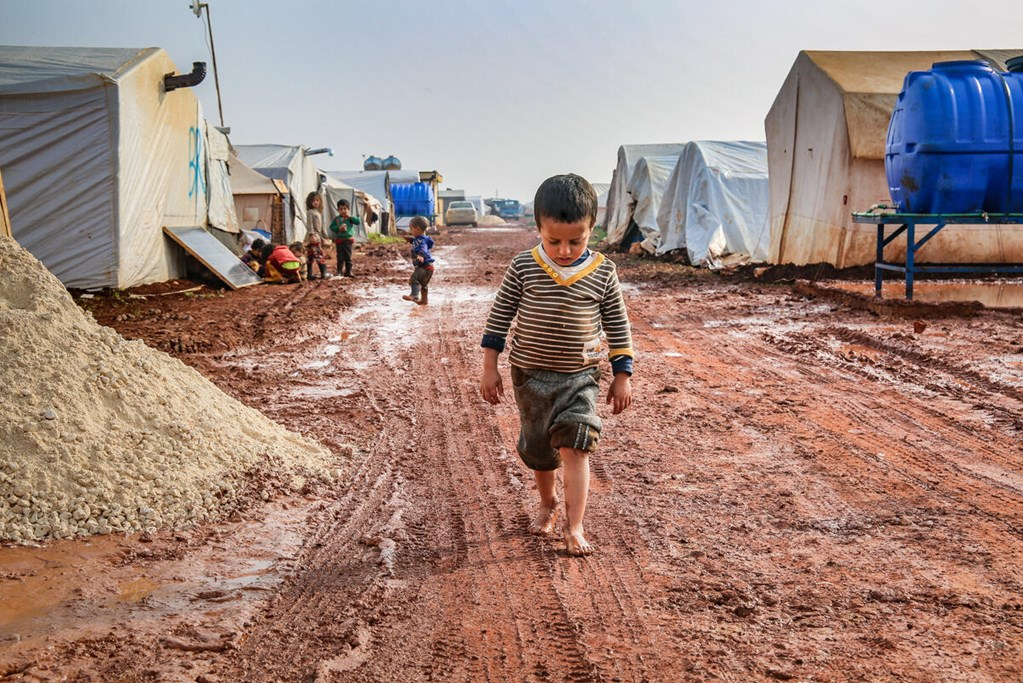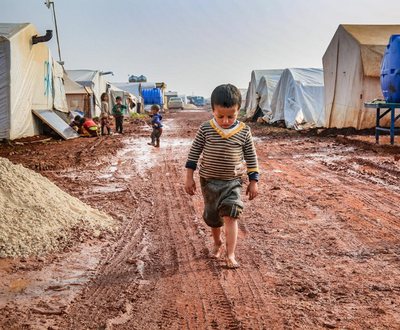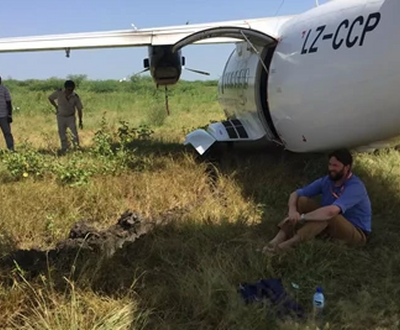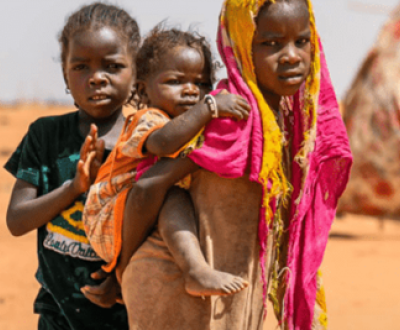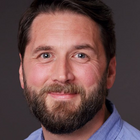
From the team
Written by Maurice Sadlier - World Vision Ireland's programmes & policy director
Follow Maurice on Twitter/X: @mauricesadlier
Earlier this week we celebrated Bloomsday, a commemoration and celebration of the life of Irish writer James Joyce, lived out by his novel Ulysses. One of my favourite quotes from Ulysses comes from Episode 17, Ithaca: “Because at the critical turning point of human existence he desired to amend many social conditions, the product of inequality and avarice and international animosity. He believed then that human life was infinitely perfectible, eliminating these conditions?”
I like to think that those gathered in Geneva in 1951 felt the same, as they forged a ground-breaking agreement for people forced to flee their homes by war and persecution. Adopted in response to the refugee crisis left in the wake of World War II, the 1951 Refugee Convention relating to the Status of Refugees remains the cornerstone of international refugee law.
I imagine they would have struggled to comprehend a world that faced a worse refugee crisis than they were facing at that time. Unfortunately, this is the case today. New figures reveal that more than 82.4 million people around the world have been forced to flee their homes amid persecution, conflict, or violence.
Among them are more than 26.4 million refugees, around half of whom are children – boys and girls under the age of 18.
As an Irishman, I am well versed in our history of forced migration; but very few of us can comprehend the terror and fear of having to flee our homes in the middle of the night. Carrying with us what precious items we can grab on the way out and fleeing for our lives.
I have had the fortunate experience of learning from many of these people. Be they Angolan refugees in Western Zambia, or Syrian refugees in Jordan or people internally displaced within South Sudan, one thing I have consistently heard is people’s desire to return to their home. I have the tiniest insight to how that might feel, and it’s overwhelming. I moved overseas for work prior to the economic crisis of 2008, and there were times I felt I couldn’t move home. But that’s an entirely different proposition to feeling that it was not safe to do so. I never had to question if returning to Ireland would cost me or my family our lives. And yet, this is the question many refugees and asylum seekers face. What makes this worse is that they don’t just have to ask the question themselves, they are quizzed by authorities the world over as part of the often-long and difficult process of proving that they should be granted asylum or refugee status.
It is for this reason that the original drafters of the Convention had the foresight to include the fundamental principle of non-refoulement - refugees cannot be sent to a place where they may be persecuted. We agreed on this 70 years ago, and yet this fundamental principle appears to be under attack, once again, in Europe. And in relation to the world’s largest refugee crisis – Syria. After 10 years of deadly war, almost 25% of global refugees are Syrian – 6.6 million Syrians have sought refuge, primarily in Lebanon, Jordan, Iraq, Egypt, and Turkey. Read that again - 6.6. million girls and boys, men and women – that’s more than the whole of Ireland, or New Zealand being displaced!
Despite evidence to the contrary, European Member States are moving to repatriate or deport Syrians, claiming it is now safe to return. It is incomprehensible that the governments of Denmark, Austria, UK and Greece among others would knowingly send people back to a regime that responsible for extrajudicial executions, torture, rape, and arbitrary detention and forced disappearances. We have a moral duty to protect those at risk. To not only take our fair share of refugees, but to loudly advocate for others to protect them.
